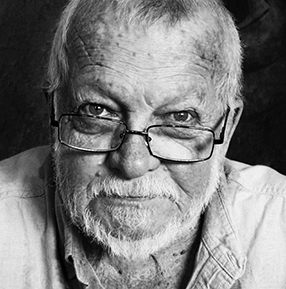True Peace
Half broken on that smoky night,
hunched over sake in a serviceman's dive
somewhere in Naha, Okinawa,
nearly fifty years ago,
I read of the Saigon Buddhist monks
who stopped the traffic on a downtown
thoroughfare
so their master, Thich Quang Dúc, could take up
the lotus posture in the middle of the street.
And they baptized him there with gas
and kerosene, and he struck a match
and burst into flame.
That was June, nineteen-sixty-three,
and I was twenty, a U.S. Marine.
The master did not move, did not squirm,
he did not scream
in pain as his body was consumed.
Neither child nor yet a man,
I wondered to my Okinawan friend,
what can it possibly mean
to make such a sacrifice, to give one's life
with such horror, but with dignity and conviction.
How can any man endure such pain
and never cry and never blink.
And my friend said simply, "Thich Quang Dúc
had achieved true peace."
And I knew that night true peace
for me would never come.
Not for me, Nirvana. This suffering world
is mine, mine to suffer in its grief.
Half a century later, I think
of Bô Tát Thich Quang Dúc,
revered as a bodhisattva now—his lifetime
building temples, teaching peace,
and of his death and the statement that it made.
Like Shelley's, his heart refused to burn,
even when they burned his ashes once again
in the crematorium—his generous heart
turned magically to stone.
What is true peace, I cannot know.
A hundred wars have come and gone
as I've grown old. I bear their burdens in my bones.
Mine's the heart that burns
today, mine the thirst, the hunger in the soul.
Old master, old teacher,
what is it that I've learned?
Copyright © 2012 by Sam Hamill. From Border Songs (Word Palace Press, 2012). Reprinted from Split This Rock’s The Quarry: A Social Justice Poetry Database.

